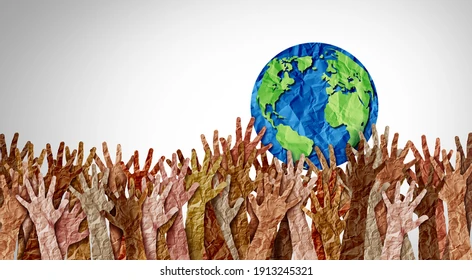Culture profoundly shapes community identity, heritage, values and behaviors. Examining components comprising culture along with influences on its fluid changes over generations reveals deep connections to society. Core cultural attributes also tracing histories and tightening social bonds makes clear why culture bears great importance for human meaning, self-concept and coordinating collective lifeways. Understanding culture requires grappling with its roles codifying traditions while integrating adaptable new expressions.
Defining Elements of Culture
Culture consists of shared, learned behaviors, beliefs, languages, rituals and artifacts uniting a community. Societal traditions and norms pass sustainably across generations through cultural transmission. Children absorb contextual nuances from caregivers, educators and media establishing mental models reflecting heritage even as cultural evolution introduces shifts.
Tangible facets of culture encompass cuisine, fashion, visual and musical arts, literature, social institutions and built spaces expressing a people’s history. Common languages, social etiquette rules and ceremonies likewise bind groups. Belief systems, ethical values and political patterns also reflect cultural programming orienting conduct. Ultimately culture permeates perceptions, aspirations, modes of reasoning and ways of being through systemic exposure and practices within cultural contexts.
Functions of Culture
Culture carries many functions allowing coordinated community living. Cultural traditions facilitate social order through shared routines, norms and scaffolds like legal contracts upholding behavioral expectations. Adherence to customary rules minimizes disruptive conflicts. New members also readily integrate into cultured social structures.
Additionally, culture gives groups cohesive identities and purpose via heritage practices, common beliefs and touchstones like anchoring origin stories or pivotal historical events. It grounds individual self concepts within collective narratives about the world giving members meaning. Culture also channels ambitions and creativity into expressive outputs celebrating community spirit. Overall cultural participation centers and motivates people toward group aligned outcomes.
Cultural Variability and Change
Despite culture’s stabilizing and orienting roles, it proves dynamically adaptive more than static. Cultural shifts continually emerge from wider structural changes like innovations, discoveries or external contacts between different cultures. Dominant cultures assimilate some counter culture trends born through experimenting creative subcultures. Even beloved traditions evolve updated decoration motifs on festival clothing or new instruments in traditional song or dance, for example.
Cultures unavoidably change amid adjusting to current realities. But deliberate efforts also consciously guide cultural transformations. Preserving heritage practices counteracting ever-faster sociocultural disruption due to globalization requires active investment. Many communities losing touch with cultures following generations of assimilation actively work to recover ancestors’ lifeways and systems of meaning to heal identity fractures. Through emergent expressions and preservation attempts alike, culture’s importance shines in the way it gives rootless societies foundations for flourishing futures.
Impacts on Individual and Society
For individuals, cultural immersion profoundly impacts self concept and worldviews. People see themselves belonging to social groups, having role responsibilities, channels for fulfillment like occupations, and recognizing shared history based cultural templates. Personal dreams and life pathways align to collective cultural priorities. Identity confusion often accompanies losing cultural anchors amid unexpected change like sudden relocation divorcing people from foundational contexts.
Broader societal functioning also depends deeply on cultural glue. Common languages, similar mental models and familiar social guidelines enable cooperation imperative for growth. Shared vision and aspirations facilitate unified effort. Cultural values moderate conduct suppressing antisocial behaviors while incentivizing pro-sociality. And cultural practices contain accumulated generational wisdom on balancing greed, ambition, and desire with group harmony and environmental sustainability essential for societal thriving.
Ultimately culture critically contributes to healthy psychosocial functioning across scales. It edifies personal and collective meaning. For communities facing increasingly disruptive technological shifts or external social pressures, maintaining cultural continuity proves vital alongside thoughtful adaptation to avoid existential crises. That demonstrated importance demands greater cultural awareness and urgent efforts sustaining cultural alignment with societal change.
The embeddedness of culture across community life means its erosion risks social collapse absent cultural evolution into sustainable new forms. Therefore, the importance of culture becomes most visible during unpredictable eras threatening accustomed realities. By centering culture amid rapid change movements, society gains ballast against turmoil along with touchstones enshrining identity through flexible interpretations of heritage having enduring importance to lives laden with meaning.
